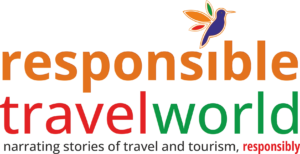Recent studies show that on business trips, four out of five business travelers will suffer from poor mental health as well as increased levels of stress, worry, tiredness, and loneliness.
It’s true that the pressures of work, new surroundings, and meeting deadlines may still make travel unpleasant. However, if businesses provide ample advance preparation and support to reduce stress and increase productivity, these trips can be a success.
1 Plan Ahead for Business Success
The cornerstone of a prosperous business trip lies in meticulous itinerary planning. This involves arranging meetings, coordinating transportation, and securing accommodations well in advance, ensuring a seamless execution.
Businesses should construct a schedule that accounts for unforeseen delays, providing employees with extra time and a structured plan to alleviate stress if deviations occur.
Consideration of time zone differences is crucial to mitigate jet lag, which can impact an employee’s performance. Thoughtful planning in this often-overlooked aspect of business travel allows employees adequate time to rest and acclimate to local time before crucial meetings.
2 Optimize Travel Management with TMCs
Utilize travel management platforms and applications to simplify the booking and expense tracking processes. Travel Management Companies (TMCs) offer 24/7 support and aid in handling travel disruptions or emergencies, reducing stress with immediate assistance.
Some platforms incorporate integrated expense-tracking features, allowing employees to log expenses during trips. This not only lessens the administrative burden but also ensures accurate and consistent expense reporting.
3 Prioritize Wellbeing in Travel Policies
Craft a clear travel policy outlining expectations, reimbursement procedures, and travel guidelines. Extend the policy beyond rule adherence, focusing on enhancing employee wellness, particularly during stressful business travel.
TMCs can assist by creating individual travel profiles, customizing plans to encompass dietary needs, fitness routines, and entertainment preferences.
Small details like budgeting for nutritious meals and providing access to quality sleep accommodations contribute to the physical and mental wellbeing of travelling employees.
Recognize frequent business travelers with added perks, such as upgraded accommodations or flexible work arrangements, acknowledging their contributions to business growth and boosting morale.
5 Harness Corporate Rewards
Encourage employees to join frequent flyer or hotel loyalty programs to access perks like upgrades, lounge access, and faster check-ins. Utilize mobile boarding passes and expedited security screening programs to streamline travel experiences.
These additions save time and reduce the stress associated with long security lines and potential flight delays.
6 Integrate Technology for Enhanced Travel Support
Embrace technology to streamline travel processes and enhance communication, reducing stress for business travelers.
Biometric authentication technology, such as facial recognition and fingerprint scanning, is being introduced in airports and hotels to expedite security and check-in procedures.
AI-driven virtual assistants provide real-time updates, suggest travel options, and can rebook flights in case of cancellations, contributing to efficient traveler care operations.
While AI offers benefits, the human touch remains essential, given the dynamic nature of the travel industry and the need for nuanced understanding to navigate diverse priorities.
(With input from Agencies)


